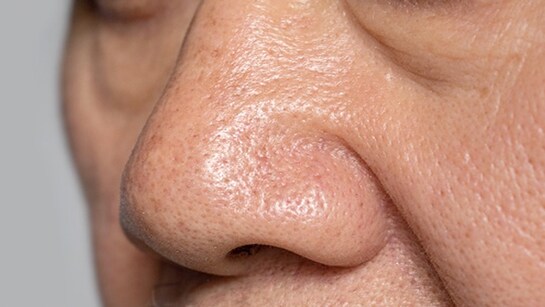What Skincare Routine Helps with Large Pores?
Large pores are a common skin concern that affects individuals of all ages, especially those with oily or aging skin. While they are a natural part of the skin’s structure, large pores can become more noticeable due to excess sebum production, lack of exfoliation, sun damage, and reduced skin elasticity. The good news is that dermatologists have refined targeted skincare routines that visibly reduce the appearance of large pores by promoting skin cell turnover, balancing oil production, and improving overall skin texture. If you're searching for expert solutions that deliver visible results, you’ll want to consider professional dermatological protocols. These methods are designed to give you a smoother and more refined complexion, especially through Large Pores Treatment in Dubai.
Understanding the Causes of Large Pores
Before building an effective skincare routine, it's important to understand what causes large pores in the first place. Common contributing factors include:
Excess Sebum Production: Oily skin types tend to produce more sebum, stretching the pore openings.
Aging and Collagen Loss: As the skin loses elasticity with age, pores may become more prominent.
Clogged Pores: Accumulation of dead skin cells and debris can widen pores.
Sun Exposure: UV rays damage collagen and thicken the skin, making pores appear larger.
Genetics: Some individuals are genetically predisposed to having larger pores.
Knowing these triggers allows dermatologists to create customized routines that directly target the root cause of enlarged pores.

Dermatologist-Approved Skincare Routine for Large Pores
Board-certified dermatologists approach large pores with a structured skincare regimen aimed at resurfacing the skin, regulating oil production, and enhancing skin renewal. Here’s a breakdown of the steps typically recommended by skincare professionals:
1. Gentle Cleansing – The First Step
Cleansing twice daily is crucial to maintain a pore-minimizing skincare routine. Dermatologists recommend using a gel-based or foaming cleanser that targets excess oil and impurities without over-drying the skin. The ideal cleanser contains ingredients like:
Salicylic acid – Penetrates pores and dissolves oil buildup.
Niacinamide – Regulates sebum and supports skin barrier function.
This step preps the skin for better absorption of treatment products.
2. Professional Exfoliation
Exfoliating removes dead skin cells that can clog pores and stretch them out. Dermatologists often suggest chemical exfoliants over physical scrubs to avoid irritation. These include:
Alpha Hydroxy Acids (AHAs) like glycolic acid – Promote cell turnover and improve skin texture.
Beta Hydroxy Acids (BHAs) like salicylic acid – Target oil and clean deeper within the pores.
Dermatologists may advise using exfoliants 2–3 times per week, depending on skin sensitivity.
3. Targeted Serums and Treatments
Serums are concentrated solutions that treat skin issues at a cellular level. Dermatologists recommend incorporating the following actives into your daily skincare routine:
Retinoids (Retinol or Retinaldehyde) – Promote collagen production and unclog pores, reducing their visibility over time.
Niacinamide (Vitamin B3) – A multi-tasking ingredient that reduces oil production, refines skin texture, and tightens pores.
Peptides – Aid in skin repair and support firming, helping minimize the sagging that enlarges pores.
Retinoids, in particular, are considered the gold standard by skincare specialists for transforming skin texture and tightening pores with consistent use.
4. Daily Sun Protection
One of the most overlooked but essential steps in any dermatologist-backed routine is broad-spectrum SPF. UV exposure degrades collagen and elasticity, exacerbating the appearance of large pores. Dermatologists emphasize:
Using SPF 30 or higher daily, even indoors or during cloudy weather.
Opting for oil-free, non-comedogenic sunscreens to prevent pore congestion.
By shielding the skin from sun damage, patients preserve skin structure and delay signs of aging.
5. Hydration and Skin Balance
Hydration is essential—even for oily skin types. Dermatologists recommend using lightweight, water-based moisturizers that hydrate without clogging pores. Ingredients to look for include:
Hyaluronic acid – Hydrates and plumps the skin without adding oil.
Glycerin – Draws water into the skin and supports a healthy barrier.
Maintaining moisture balance prevents the skin from overproducing oil, which contributes to enlarged pores.
6. Consistency and Patience
One of the key insights dermatologists stress is consistency. No single product can shrink pores overnight. Dermatological treatments require routine use over weeks to months to show visible improvement.
Regular check-ins with your dermatologist can help adjust the routine as your skin improves, ensuring optimal results.
Professional Recommendations from Dermatologists
Board-certified dermatologists approach large pores by tailoring each patient’s skincare plan based on their skin type, age, and environmental factors. Treatments are selected after a thorough assessment, and products are prescribed with the goal of long-term maintenance and skin health.
Patients are educated about ingredient compatibility, ideal product layering, and how to avoid sensitizing the skin. The professional routine is built not just to minimize pores but also to maintain a youthful, refined appearance overall.
Benefits of Dermatologist-Recommended Skincare for Large Pores
Following a dermatologist-guided skincare routine for large pores delivers multiple benefits:
Refined Skin Texture: Regular exfoliation and retinoids smoothen rough skin.
Balanced Oil Levels: Sebum regulation reduces shine and pore clogging.
Tightened Appearance: Improved elasticity helps tighten stretched pores.
Prevention of Future Issues: Routine care prevents blackheads, acne, and further pore enlargement.
Enhanced Product Absorption: Clean, exfoliated skin better absorbs serums and treatments.
These advantages result in radiant, healthy-looking skin that feels as good as it looks.
Conclusion
Large pores may be a persistent concern, but with the guidance of expert dermatologists and a consistent, ingredient-focused routine, they can be significantly minimized. The ideal regimen is not about harsh treatments but about nurturing the skin with clinically proven steps that work over time. From effective cleansing to retinoid application, each phase is part of a strategy carefully built by professionals for optimal skin renewal. Whether you’re managing oily skin, signs of aging, or sun-related damage, following a doctor-approved skincare regimen offers visible and lasting improvements.